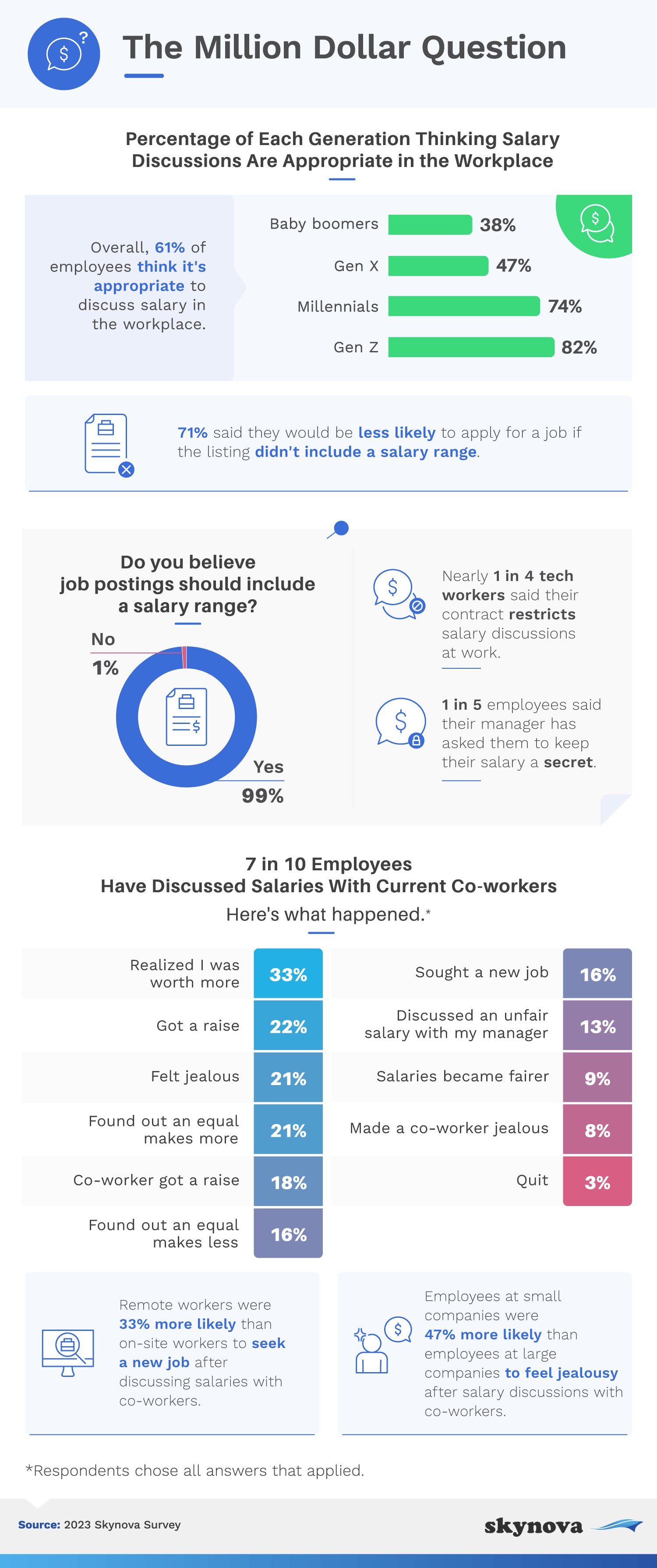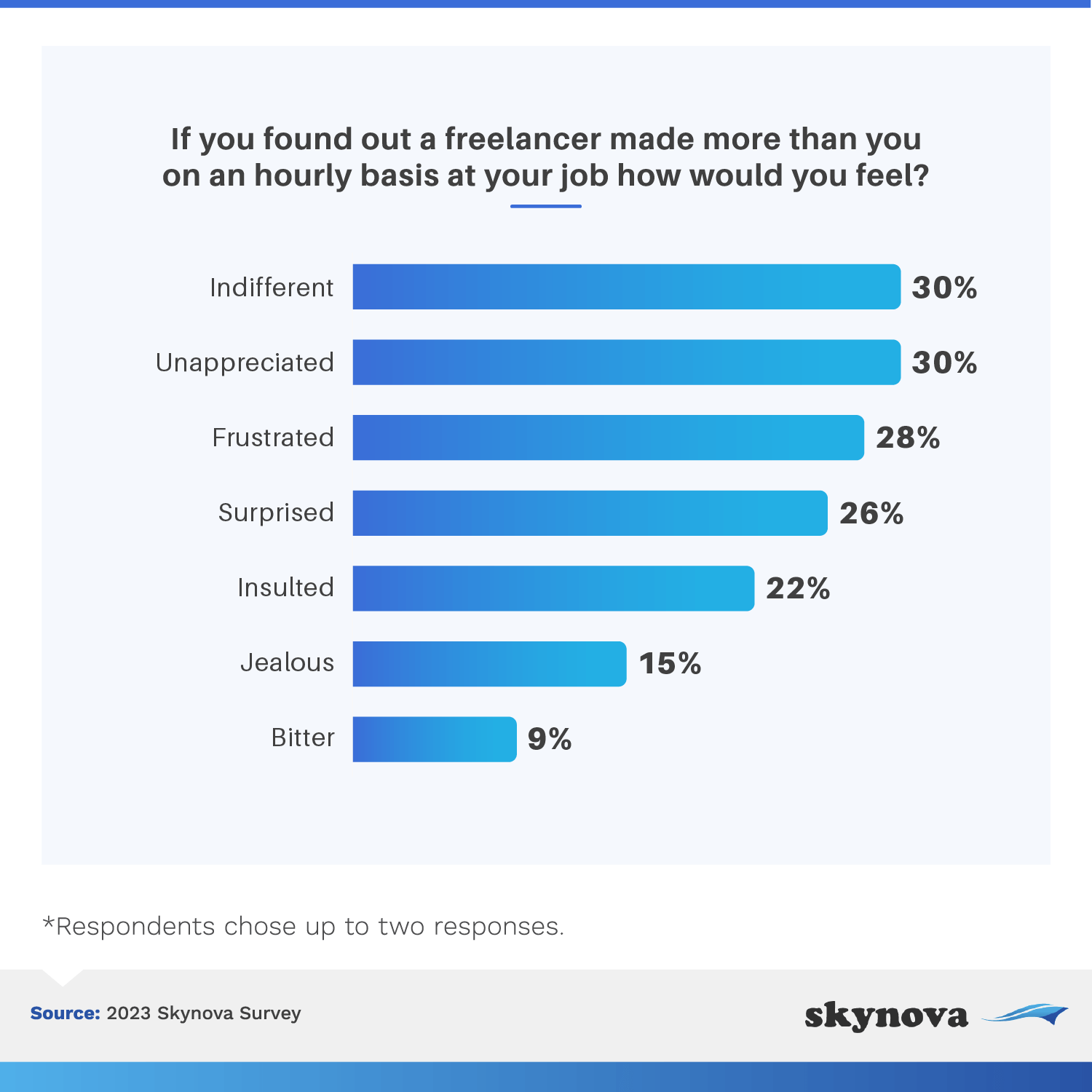
|
Have you ever been told you shouldn't discuss your salary with colleagues? Talking about money has been considered taboo in the past, but we wondered — is this still the case in 2023? We recently surveyed over 1,000 full-time employees to explore how people feel about discussing salaries today.
First, let's look at how employees talk about their salaries in the workplace and the consequences of doing so.

As new salary transparency laws are being enacted across the U.S., it seems that some state authorities are in agreement with the workers we surveyed, as almost all respondents (99%) indicated that salary ranges should be disclosed in job postings. Additionally, 71% said they would be less likely to apply for a job if it doesn't list a salary range. But those sentiments shifted once they got to work.
Overall, 61% of employees said it's appropriate to talk about salary in the workplace in 2023. Our survey results also reveal the following:

Respondents reported being equally as likely to feel indifferent or unappreciated (30%) if they became aware of a freelancer making more than them hourly. This shows that some full-time employees understand that freelancers don't have the same costs for the employer, nor do they receive the same benefits. Employers may need to be wary of transparency over freelancer invoices, since on-site workers were 76% more likely than remote workers to feel unappreciated if a freelancer made a higher hourly rate.
While many workers support salary transparency in the workplace, fewer people are comfortable with it in their personal lives.

Once again, we found baby boomers to be the most private about money matters: 58% said discussing salary outside of work is taboo. But since Gen Zers and millennials were the least likely to feel that way both in and out of the workplace, it may only be a matter of time before salary talk becomes commonplace.
Almost 70% of respondents said discussing salary is essential for a healthy relationship. And over a quarter said they would end a romantic relationship if their partner refused to disclose salary information, with Gen Z being most likely to say so (29%).
While workers are pushing for salary transparency in the workplace, some still seem to shy away from discussing money in private. The trend toward openness regarding pay seems to be on the rise as younger generations are less concerned about this taboo of the past. But even now, if businesses provide salary ranges in job postings, they'll likely attract more candidates in a competitive job market.
As salary transparency laws continue to be enacted across the country, small business owners will need to be mindful of the impacts of recruiting across state lines. Specific laws and penalties vary based on jurisdiction, with fees between $100 to $250,000 for failure to post a salary range in job listings.
Skynova Inc. helps small businesses get paid faster by simplifying online invoicing and speeding up the billing process with easy-to-use invoice templates.
We surveyed 1,017 full-time employees to explore salary transparency. Additionally, we surveyed 500 full-time employees to explore how employees perceive freelancer pay.
Like what you read? Feel free to share with friends or colleagues for any non-commercial purposes, but please link back to this page to credit the creators.